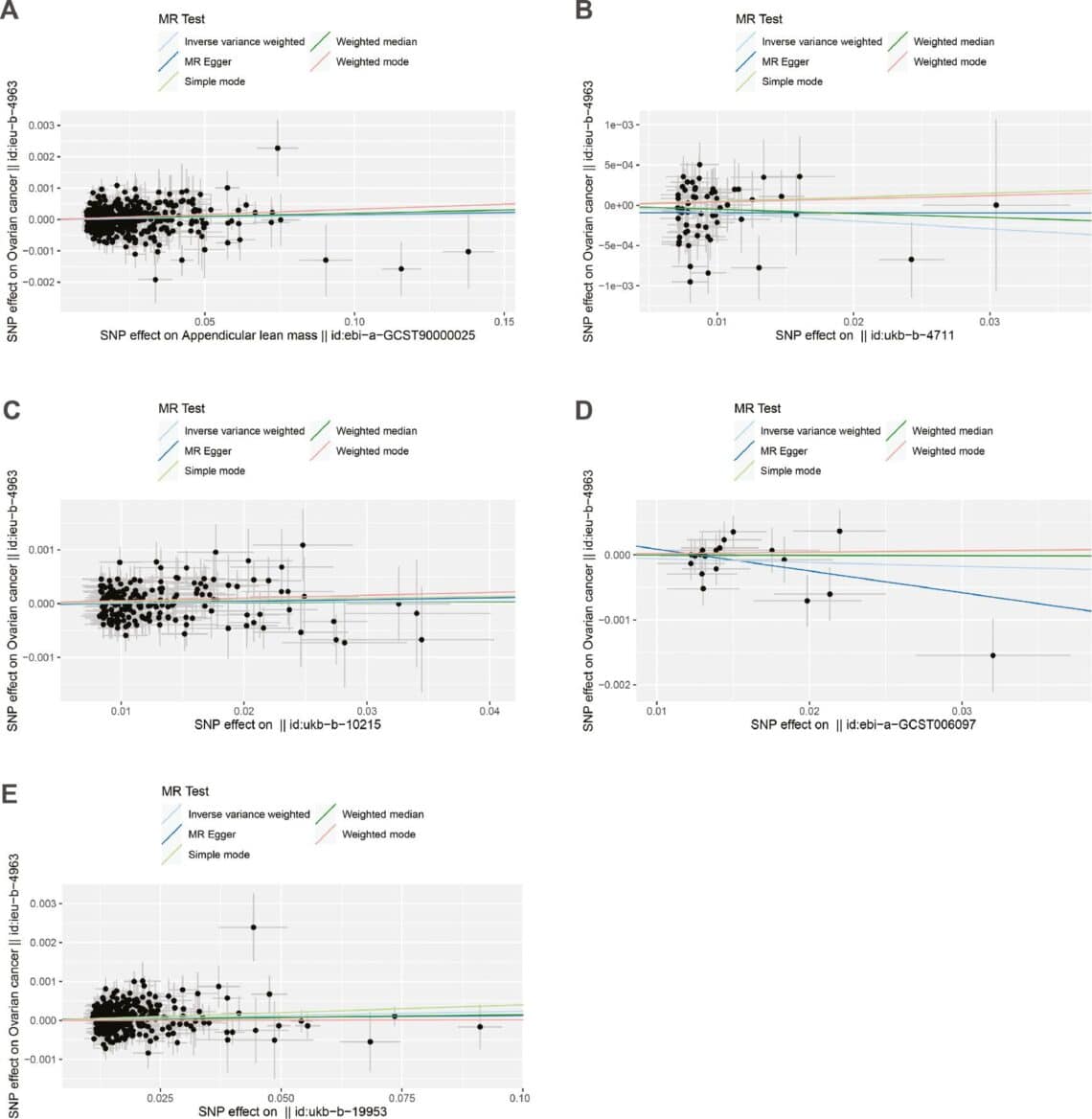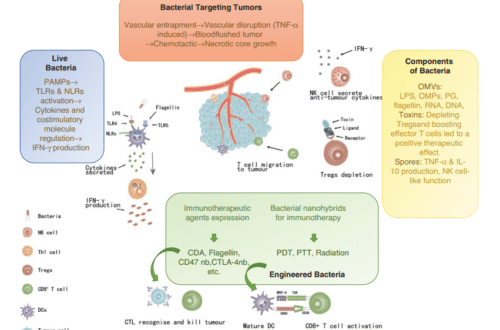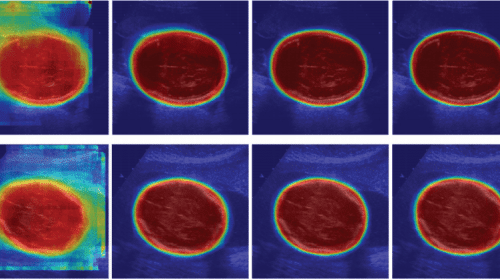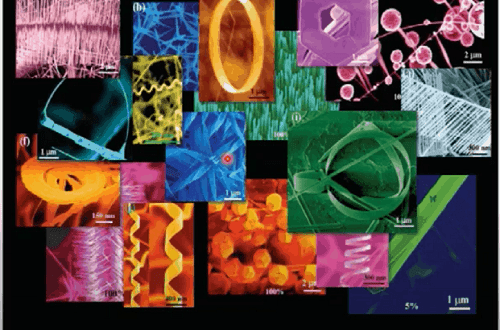
Sarcopenia-related Traits, Body Mass Index and Ovarian Cancer Risk
Announcing a new article publication for BIO Integration journal. This study was aimed at exploring the causal relationships of four sarcopenia-related traits (appendicular lean mass, usual walking pace, right hand grip strength, and levels of moderate to vigorous physical activity) with body mass index (BMI) and ovarian cancer risk, by using univariable and multivariable Mendelian randomization (MR) methods.
Univariable and multivariable MR was performed to estimate causal relationships among sarcopenia-related traits, BMI, and ovarian cancer risk, in aggregated genome-wide association study (GWAS) data from the UK Biobank. Genetic variants associated with each variable (P < 5 × 10−8) were identified as instrumental variables. Three methods—inverse variance weighted (IVW) analysis, weighted median analysis, and MR-Egger regression—were used.
Univariable MR analyses revealed positive causal effects of high appendicular lean mass (P = 0.02) and high BMI (P = 0.001) on ovarian cancer occurrence. In contrast, a genetically predicted faster usual walking pace was associated with lower risk of ovarian cancer (P = 0.03). No evidence was found supporting roles of right hand grip strength and levels of moderate to vigorous physical activity in ovarian cancer development (P = 0.56 and P = 0.22, respectively). In multivariable MR analyses, the association between a genetically predicted faster usual walking pace and lower ovarian cancer risk remained significant (P = 0.047).
This study highlights a role of slower usual walking pace in the development of ovarian cancer. Further studies are required to validate our findings and understand the underlying mechanisms.
https://www.scienceopen.com/hosted-document?doi=10.15212/bioi-2023-0020
BIO Integration is fully open access journal which will allow for the rapid dissemination of multidisciplinary views driving the progress of modern medicine.
As part of its mandate to help bring interesting work and knowledge from around the world to a wider audience, BIOI will actively support authors through open access publishing and through waiving author fees in its first years. Also, publication support for authors whose first language is not English will be offered in areas such as manuscript development, English language editing and artwork assistance.
BIOI is now open for submissions; articles can be submitted online at:
https://mc04.manuscriptcentral.com/bioi
Please visit www.bio-integration.org to learn more about the journal.
Editorial Board: https://bio-integration.org/editorial-board/
Please visit www.bio-integration.org to learn more about the journal.
Editorial Board: https://bio-integration.org/editorial-board/
BIOI is available on the IngentaConnect platform (https://www.ingentaconnect.com/content/cscript/bioi) and at the BIO Integration website (www.bio-integration.org).
Submissions may be made using ScholarOne (https://mc04.manuscriptcentral.com/bioi).
There are no author submission or article processing fees.
Follow BIOI on Twitter @JournalBio; Facebook (https://www.facebook.com/BIO-Integration-Journal-108140854107716/) and LinkedIn (https://www.linkedin.com/company/bio-integration-journal/).
ISSN 2712-0074
eISSN 2712-0082
Manli Wu, Jiahao Chen and Xiaohong Kuang et al. Sarcopenia-related Traits, Body Mass Index and Ovarian Cancer Risk: Investigation of Causal Relationships Through Multivariable Mendelian Randomization Analyses. BIOI. 2024. Vol. 5(1). DOI: 10.15212/bioi-2023-0020




